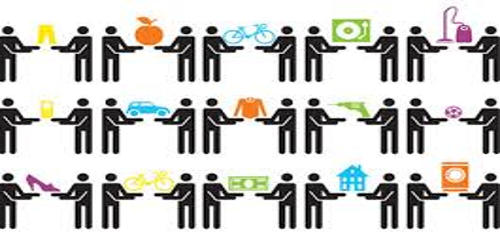Collaborative consumption encompasses the sharing economy. It is a new approach to consumer access to goods and services based on an interdependent peer-to-peer model. Collaborative consumption can be defined as the set of resource circulation systems, which enable consumers to both “obtain” and “provide”, temporarily or permanently, valuable resources or services through direct interaction with other consumers or through a mediator. It differs from conventional consumption in that resources, goods, or services are shared by a group rather than individuals. Collaborative consumption is not new; it has always existed (e.g. in the form of flea markets, swap meets, garage sales, car boot sales, and second-hand shops).
Collaborative consumption is the shared use of a good or service by a group. The sharing economy is a system based on the ability and perhaps the preference for individuals to rent or borrow goods rather than buy and own them. A common example is a ridesharing, whereby multiple people have access to transportation and pay for it, not just the owner of the car. Examples include Uber, an app-based system that allows people to provide a driver service using their own cars, and Airbnb, which allows people to rent out their homes or rooms to travelers. Increasingly, society, especially nowadays with the irruption of digital culture, looks very closely at the costs and tries to look for options and services more economically competitive.
Advantages –
- Decreasing environmental effects. It ensures products are cycled and reused to its complete life cycle, thereby, reducing the effects on the environment.
- Accessibility to self-employment opportunities. It offers economic benefits for everyone involved. This ensures the seller makes some money on commodities that were otherwise futile.
- Embeds a sense of trust in the community. Its contribution to societal concerns isn’t just restricted to the environment.
- Higher savings with the same lifestyle. It has provided means to have a desired lifestyle without burning a hole in your pocket.
- More business opportunities. It’s more likely to force existing industries to become more like the collaborative platforms that challenge them, with potential benefits for everyone involved.
- Lower ownership. Not having to deal with car loans, insurance, maintenance issues, and potential thieves could be a big benefit.
- Easy access to capital. For any business getting access to traditional means of financing is not just a hassle but an obstacle too.
Critics argue that collaborative consumption is sometimes unfair when companies are not required to abide by the same regulations as conventional companies. Overall, the collaborative consumption, ie, share a product (and pay) with other consumers, it is becoming an increasingly strong trend.
















